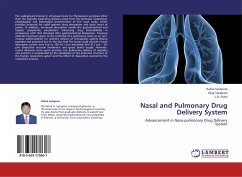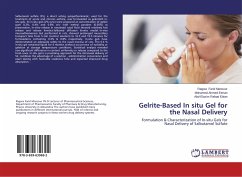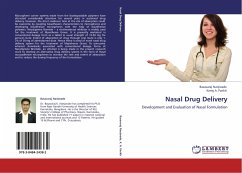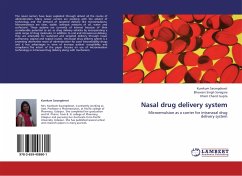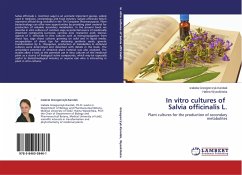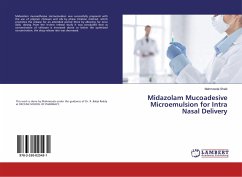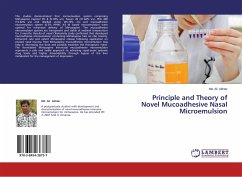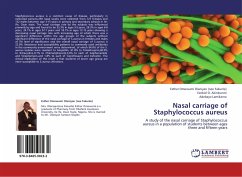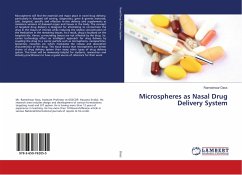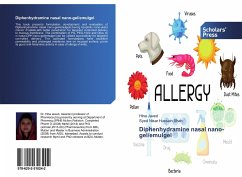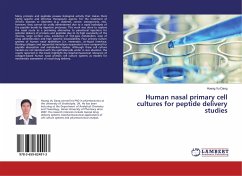
Human nasal primary cell cultures for peptide delivery studies
Versandkostenfrei!
Versandfertig in 6-10 Tagen
36,99 €
inkl. MwSt.

PAYBACK Punkte
18 °P sammeln!
Many proteins and peptides possess biological activity that makes them highly specific and effective therapeutic agents. For the treatment of chronic diseases or disorders (e.g. diabetes, cancer, osteoporosis, etc), however, they cannot be orally administered due to a rapid hydrolysis of the peptide bonds by digestive proteases. This work was done to explore the nasal route as a promising alternative to parenteral injections for systemic delivery of proteins and peptides due to its high vascularity of the mucosa, large surface area, avoidance of first-pass metabolism, ease of drug administrati...
Many proteins and peptides possess biological activity that makes them highly specific and effective therapeutic agents. For the treatment of chronic diseases or disorders (e.g. diabetes, cancer, osteoporosis, etc), however, they cannot be orally administered due to a rapid hydrolysis of the peptide bonds by digestive proteases. This work was done to explore the nasal route as a promising alternative to parenteral injections for systemic delivery of proteins and peptides due to its high vascularity of the mucosa, large surface area, avoidance of first-pass metabolism, ease of drug administration and high systemic bioavailability. Four primary culture systems of human nasal epithelium (i.e. immersion, air-liquid interface, floating collagen and sequential monolayer-suspension) were compared for peptide absorption and metabolism studies. Although these cell culture models are not identical with the epithelial cells under in vivo situation, the results reported in this book highlight the biopharmaceutical relevance of collagen-based human nasal primary cell culture systems as models for mechanistic assessment of nasal drug delivery.



